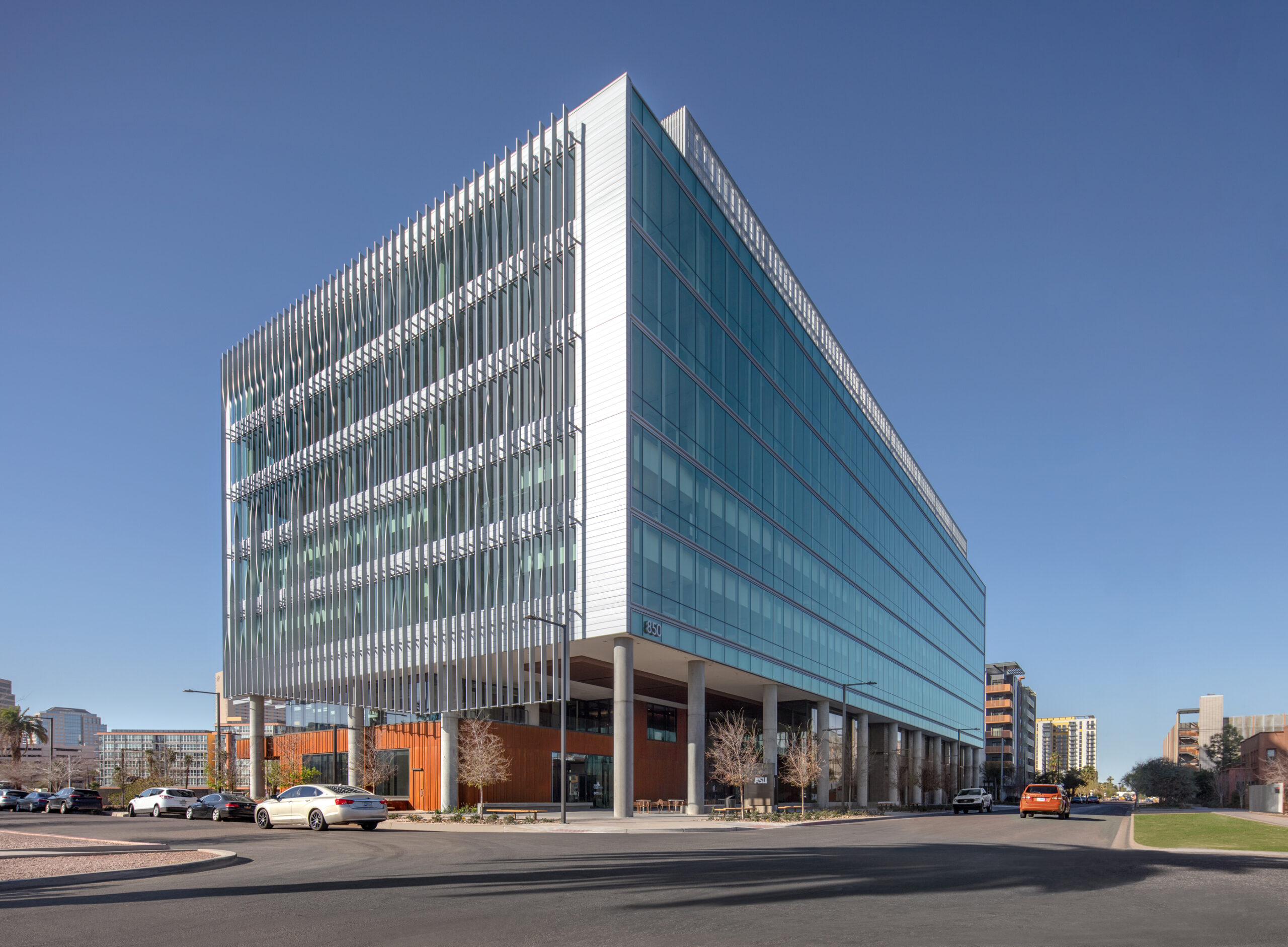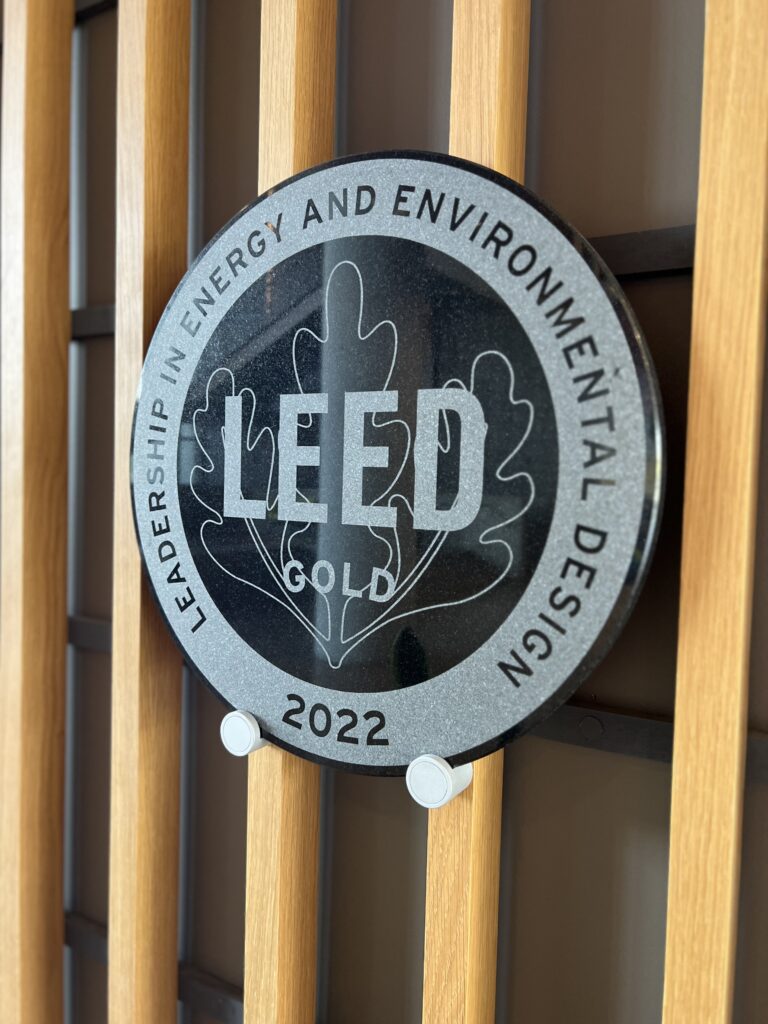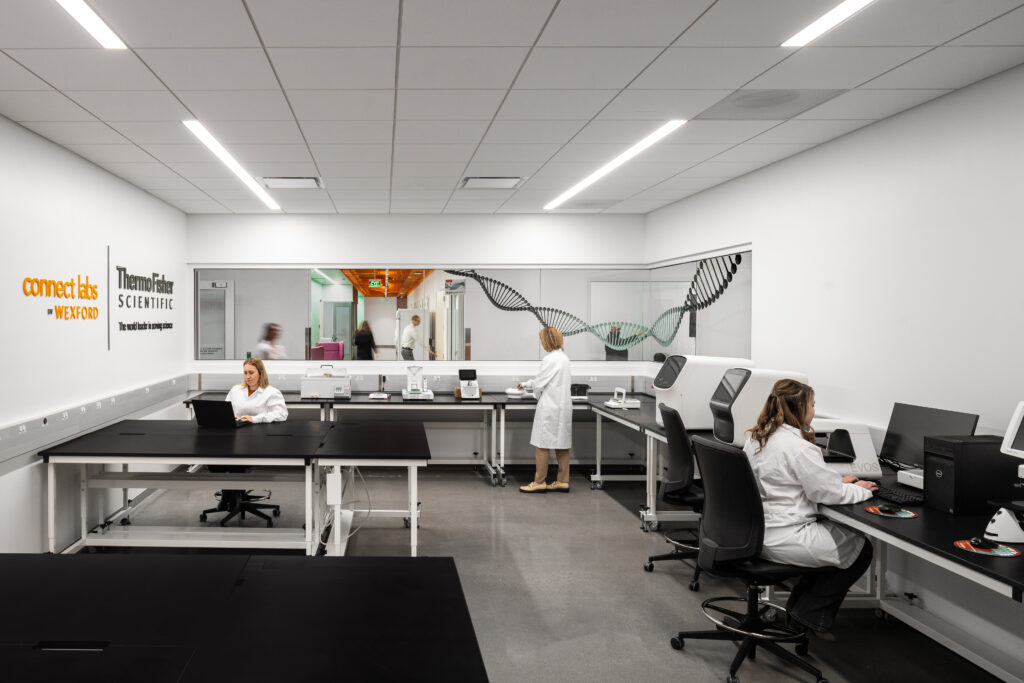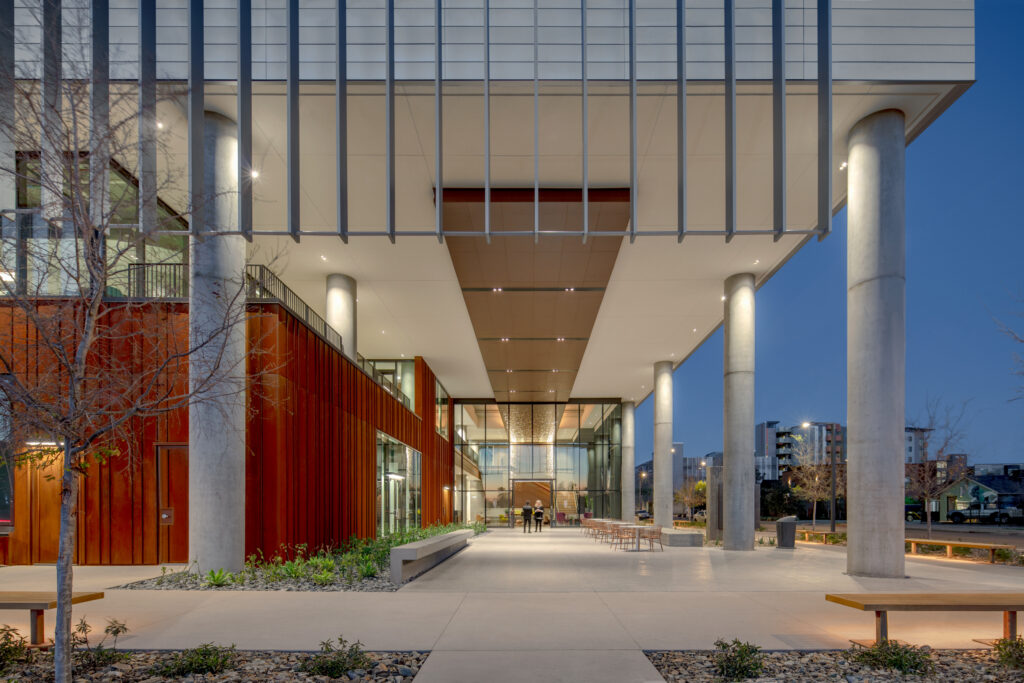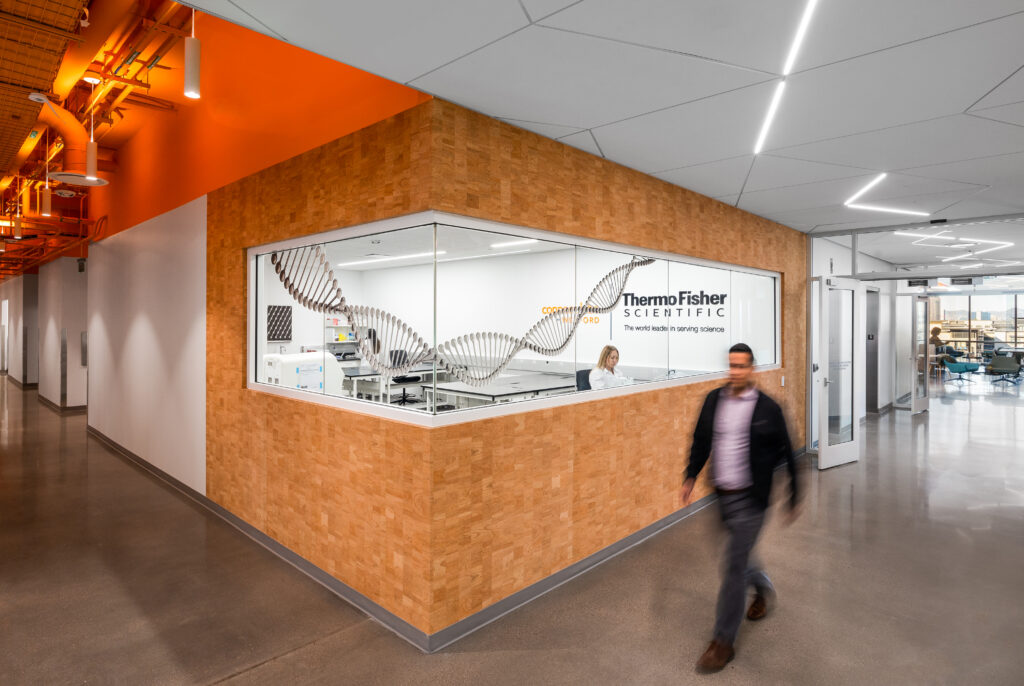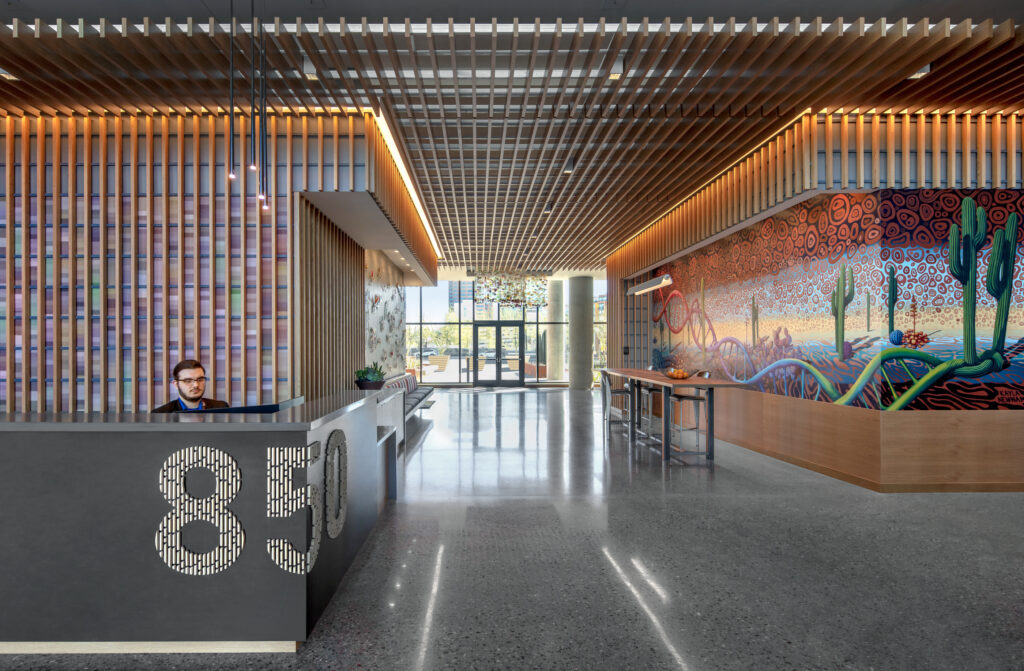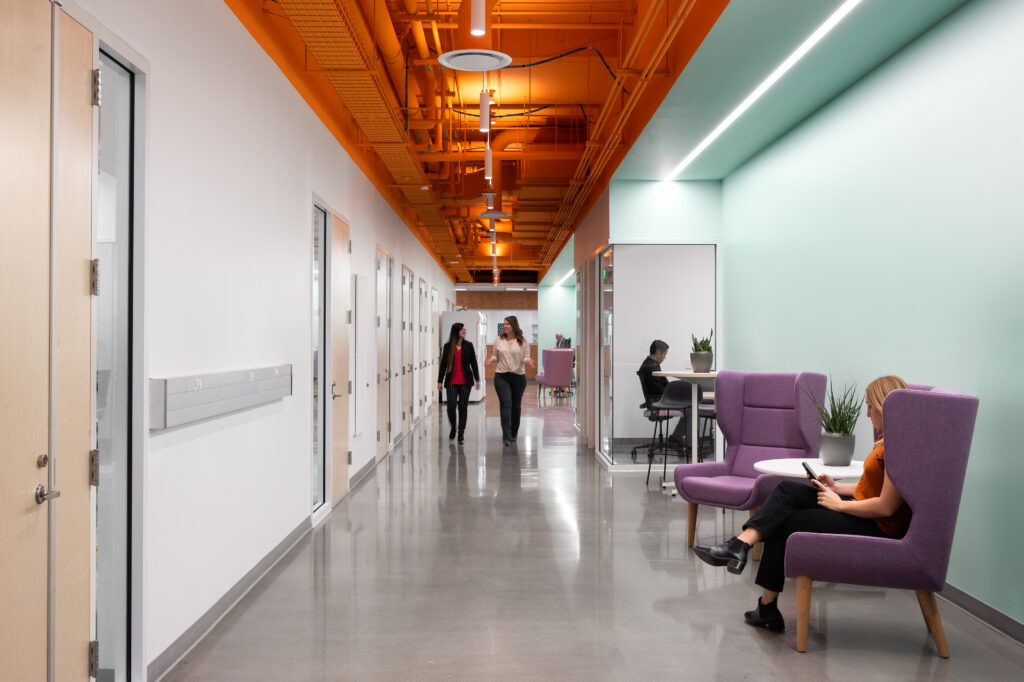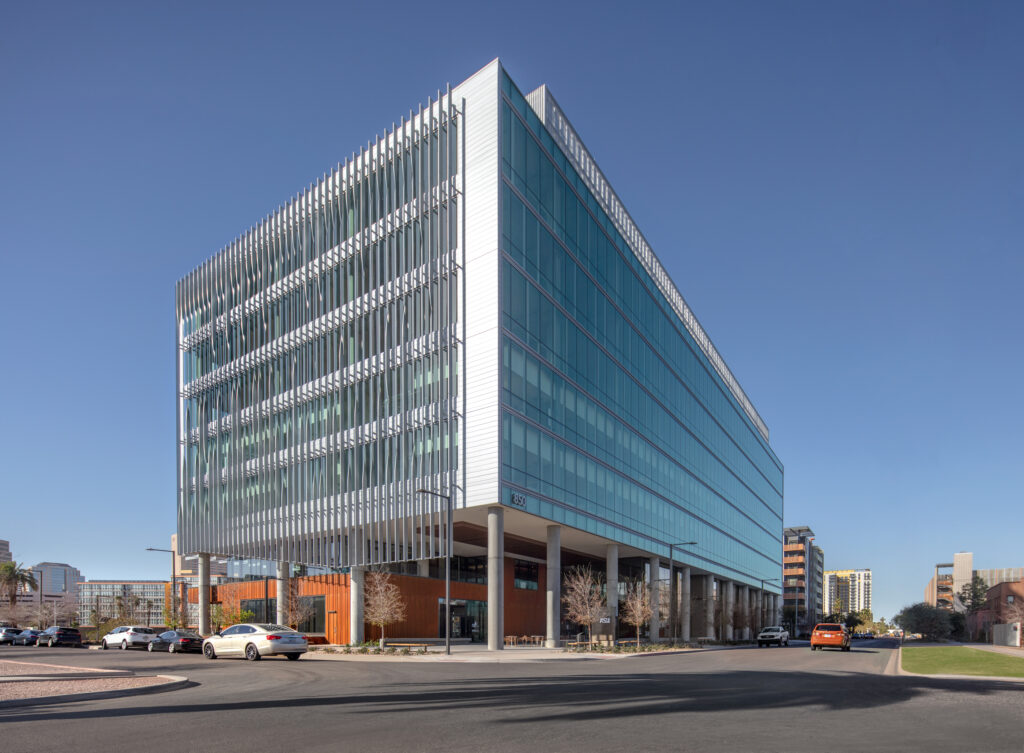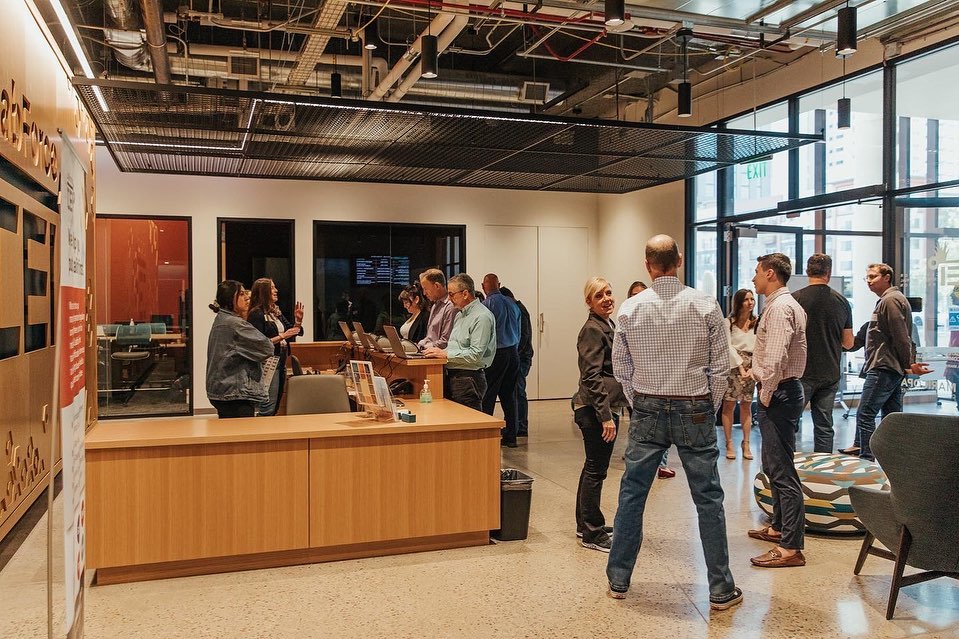850 PBC, a 227,000 square foot lab and office developed by Wexford Science + Technology, received LEED Gold certifications by the U.S. Green Building Council for both the Core and Shell and the Interiors of the building.
LEED, or Leadership in Energy & Environmental Design, is a globally recognized symbol of excellence in green building. LEED certification ensures electricity cost savings, lower carbon emissions and healthier environments where people live, work, learn, play and worship, according to the USGBC website. To receive a Gold standard, a building needs to meet a variety of criteria including carbon, energy, water, waste, transportation, materials, health and indoor environmental quality.
“Wexford Science + Technology is committed to making a positive impact in the communities we serve, and this LEED Gold Certification for 850 PBC is part of that commitment,” said Kyle Jardine, Wexford Science + Technology’s Vice President and Market Executive. “We will continue to a focus on and prioritize sustainable design and operations that positively improve our neighborhood and Phoenix overall.”
850 PBC was also recently a finalist for the Arizona Forward Environmental Excellence Award.
Other buildings on the Phoenix Bioscience Core with a LEED certification include the Dignity Health Cancer Institute and St. Joseph’s Hospital and Medical Center, which received a LEED Gold certification; the Health Sciences Education Building, which is home to Northern Arizona University and the University of Arizona, which also received a LEED Gold certification; and the Arizona Biomedical Collaborative building, which is a joint research building with ASU and UArizona that also received a LEED Gold certification.
850 PBC is home to both public and private R&D with translational and clinical research from Arizona State University’s College of Health Solutions and Knowledge Enterprise and other research and companies. The first floor is mixed use with ASU, CEI, Venture Café and restaurant coming soon. The second, third and fourth floor are occupied by ASU. The fifth floor is the new home to Connect Labs by Wexford, a 35,000 square foot wet-lab equipped co-working space for life science companies and startups. The sixth floor has newly completed labs and offices for Calviri and about 25,000 square feet of available space to lease for lab or office use.
The building, located at 5th Street and McKinley on the northern portion of the Phoenix Bioscience Core district, is the latest development on the PBC. Future plans on the northern portion of the PBC call more development and ASU and Wexford Science + Technology are working together on a second building located immediately east of 850 PBC. When the Phoenix Bioscience Core is fully developed, there will be more than 6 million square feet of life science, academic and office space in the heart of downtown Phoenix.
The University of Arizona is currently moving forward on its Center for Advanced Molecular and Immunological Therapies project, which will be located on the southwest corner of 7th Street and Fillmore. The university is currently constructing a temporary location for CAMI in its Biomedical Sciences Partnership Building, which is expected to be completed toward the end of 2023.
The PBC is the only place in Arizona where all three of the state’s public research universities — Arizona State University, Northern Arizona University and the University of Arizona — collaborate on health care and life sciences education and research. The district is also home to a growing number of life science and health care companies including the Translational Genomics Research Institute (TGen), part of the City of Hope; Exact Sciences; Dignity Health, the Veteran’s Administration; Phoenix Children’s Hospital; the Phoenix Union Bioscience High School and much more.

